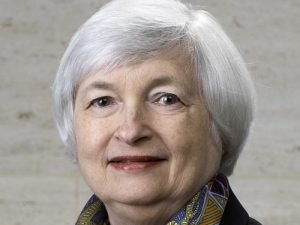The impending abortion ban would be "very damaging" to the U.S. economy, says Treasury Secretary Janet Yellen, as it could harm women's ability to enter the workforce.
Yellen's passionate testimony to the Senate Banking Committee began when New Jersey Senator Bob Menendez asked what the abortion ban would mean economically – a question that dominated the Treasury Department's Financial Stability Oversight Council annual report hearing. In response, Yellen explained how the 1973 abortion ruling, Roe v. Wade, helped women pursue their educations and invest in their careers. This increases a woman's lifetime earning potential. As a result of access to safe and legal abortions, Yellen said, women could balance their careers and health with their families. Without abortion, she continued, single mothers or teen parents will experience undue financial burden while decreasing their earning potential, which could "set women back decades."
"In many cases, abortions are of teenage women, particularly low-income and often Black," Yellen told the Senate. "They aren't in a position to be able to care for children. This is not harsh. This is the truth."
Yellen referenced research from Caitlin Myers, an Applied Microeconomist from Middlebury College, which shows that Roe v. Wade positively impacted children by decreasing their risk of poverty. Additionally, women without access to abortions were more likely to live in poverty and need public assistance. More than 150 economists signed Myers' amicus brief detailing how profound the economic consequences would be if abortion were made illegal.
Republican Senator Tim Scott of South Carolina rebutted Yellen's comments by calling them "harsh," as he believed bringing up economic consequences of the issue to be callous when talking about such a personal and painful topic. However, fellow Democrats came to Yellen's defense. Democratic Senator Tina Smith of Minnesota told CNN that Yellen expressed an issue familiar to women about having control over their reproductive lives. Without that control, Smith says, a woman may not have a great deal of control over other aspects of her life, including her economic opportunities.




















